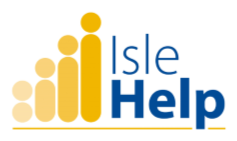Debt can be a problem at any age, but you may find that as you get older you struggle to manage on the income that you have. There are many factors that can lead to debt problems, including retirement, illness, disability, divorce, bereavement and poverty. Inadequate pension provision can also lead some older people to use credit for essential household goods, resulting in debts with high interest repayments.
There are organisations that can help you to deal with your debts and it is important not to panic. If you are in debt, the worst thing you can do is to ignore the problem, as it will only get worse.
Contact the Money Advice Team
The Money Advice team can help you to take control of your finances and provide you with solutions for dealing with your priority and non-priority debts.
For more information or to book an appointment, please call
or via email on
Make a list of your debts
This is the first thing that you need to do in order to tackle the problem. Make a list of all the people that you owe money to. These are called your creditors. Write down their name and contact details, your account or reference number, and the amount of money that you owe. Once you have completed this list you can then work out which debts to deal with first. Some debts are more urgent than others, which is explained below.
Priority Debt
Priority debts can have serious consequences if they are not dealt with. They include the
- Mortgage or rent arrears
- Fuel arrears
- Council tax arrears
- TV licence
- Court fines
- Arrears of maintenance payments, including Child Support
- Income tax or VAT arrears
- Hire purchase debts in some circumstances
Non-payment of the above debts could result in you losing your home, having your fuel supply cut off, your essential goods being repossessed or bailiffs taking your belongings. As a final resort you could be sent to prison or be made bankrupt.
Non-priority debt
Non-priority debts are not as urgent, as the consequences of non-payment are not as severe. They include the following:
- Benefit overpayments
- Credit debts such as overdrafts, loans, credit cards hire purchase and catalogue debts
- Student loans
- Money borrowed from family or friends
It is still important to acknowledge and to deal with these debts, but they are not as urgent as the priority debts.
Work out your budget
To do this you will need to list all of your income and expenditure. It is important that you are honest about your expenditure or you will not be able to produce a realistic budget plan.
The following list gives some ideas of the things that you will need to include:
Income
- Earnings for your household
- Benefits
- Maintenance payments for you or your children
- Contributions from other family members or lodgers
Expenditure
- Housing costs, i.e. your mortgage or rent
- Council tax
- Fuel and water charges
- Telephone charges
- Housekeeping, i.e. food and cleaning products
- Travel expenses
- Insurance
- Television licence
- Childcare costs
- Clothes
- Any other essential expenses
Other Helpful Links:
gov.uk – options for paying off your debts
Page Updated On 27/08/2021
For more information or to book an appointment, please call
or via email on

